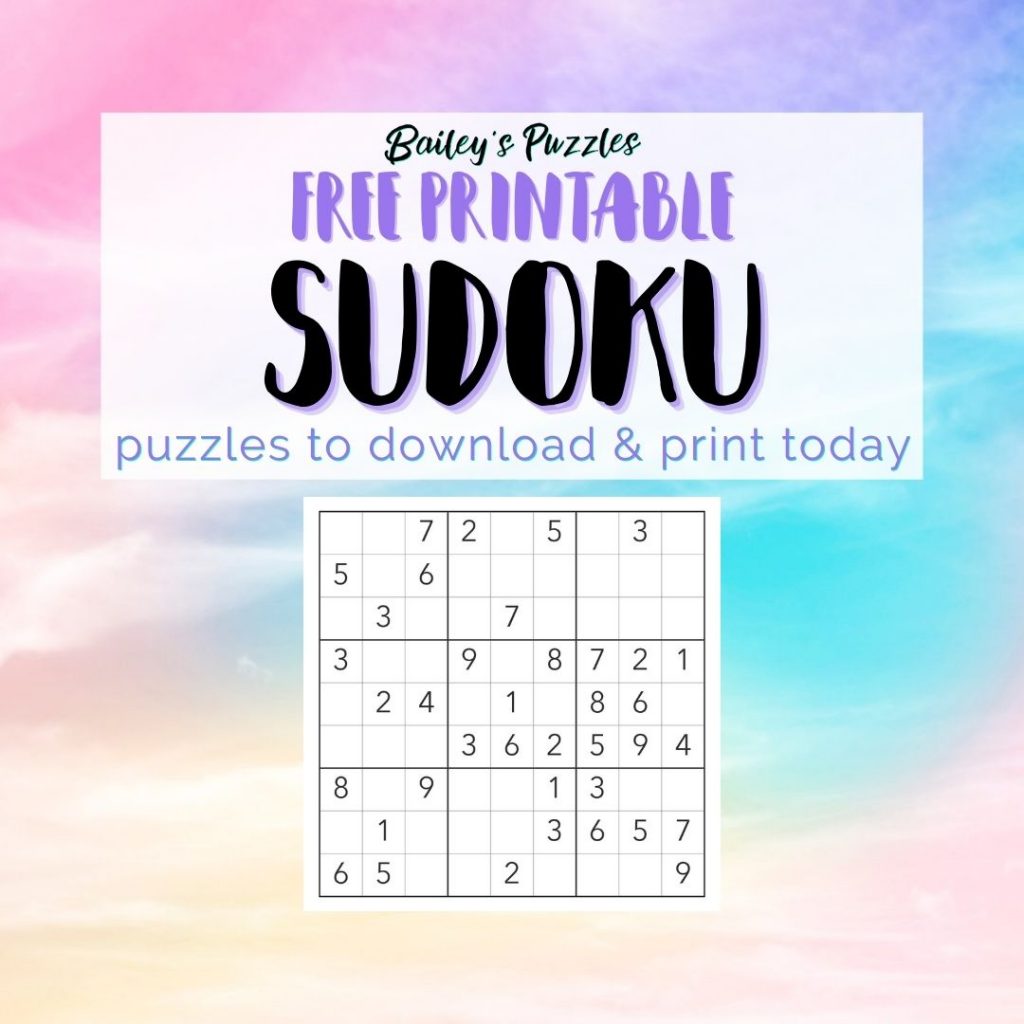This post may contain affiliate links. This means Bailey’s Puzzles might receive a commission on the sale of certain items. This is at NO additional cost to you. Visit the policies page to learn more.
Puzzles are a great hobby that you can enjoy solo or as a family activity. Whatever type of puzzle you like to do (crosswords, cryptograms, jigsaws, sudoku, or something else), you’re getting some awesome benefits.
These are the top 11 amazing benefits of puzzles:
- Child Development
- Delay, Reduce, or Avoid Disease
- Increase Vocabulary
- Lower Stress & Improve Mood
- Brain Exercise
- Improve Memory
- Improve Concentration & Productivity
- Improve Problem Solving
- Improve Visual & Spatial Reasoning
- Improve Attention to Detail
- Improve IQ
Benefits of Puzzles (for everyone)
Puzzles aren’t just for kids or the elderly, there are puzzle benefits for everyone (including YOU). Learn more about the different benefits you can get from doing puzzles.
1. Child Development
Puzzles are a great way to boost child development. Children will gain all the other benefits listed below but they’re getting a little extra help because they’re still developing.
Playing with blocks, puzzles, and shape games can help children develop their spatial skills more quickly than children who don’t play with them. The stronger (and earlier) children develop spatial skills, the better equipped they’ll be for math, science, and technology.
Playing with puzzles can also help children develop concentration, patience, and organization skills faster than children who don’t use puzzles. These are skills that will benefit a child in every aspect of their life.
Finally, physical puzzles can help children develop fine motor skills and better hand-eye coordination. Putting a puzzle or block activity together involves using the hands, especially the thumb and forefinger, to control the pieces.
When choosing a puzzle for a child, be sure to get one that’s the right level. Too easy and the child will be bored and unchallenged. Too hard and the child will be frustrated and likely to give up. As the child ages (and improves at puzzles), make sure to increase the difficulty!
2. Delay, Reduce, or Avoid Disease
Puzzles are probably not going to prevent the development of dementia, Alzheimer’s, or other diseases. However, they could delay the onset and/or reduce the severity.
Research into the benefits of puzzles on disease is limited but growing, however recent research indicates that:
- the frequency of word puzzle use is directly related to cognitive function.
- there is a close relationship between the frequency of number‐puzzle use and the quality of cognitive function.
- cognitive improvements continue for 5 years after starting.
- crossword puzzles delayed the start of accelerated memory decline by 2.54 years.
3. Increase Vocabulary
Puzzles can be used to increase or improve your vocabulary in so many ways. Puzzles can help you improve your spelling, learn new words and expand your vocabulary, and find new uses for words you already know. Furthermore, puzzles can help you learn a new language.
4. Lower Stress & Improve Mood
Solving puzzles can be a huge mood booster because it can increase your brain’s production of dopamine. Dopamine is often called the “feel good” neurotransmitter because it’s often released when your brain is expecting (or experiencing) a reward.
Dopamine is released every time you experience a little tingle of, “got it.” Doing a word search, you’ll get a little dopamine hit when you find a word. Sudoku? Every time you write a number. Every puzzle will give you regular dopamine.
All the dopamine released during puzzles will have you feeling relaxed (less stress) and happy (improve mood).
5. Brain Exercise
Just like your body, your brain needs exercise and puzzles are a great way to get it.
You might have heard that your brain has two sides, the left and right. The left side of your brain is the thinking side that uses logic, reason, and analytics. The right side of your brain is the creative side that uses imagination, intuition, and insights.
All puzzles will provide exercise to the left side because they all use (at least some) logic to complete. Some puzzles will also provide right brain exercise (such as jigsaw puzzles).
6. Improve Memory
The benefits of puzzles seem to be really focused on the brain, amirite? Well, here’s another one: puzzles can improve your short-term and/or long-term memory.
All puzzles will use help improve short-term memory. For example, when doing a jigsaw puzzle you’ll use your short-term memory to remember what you’re looking for (shape, size, color, etc). Another example is word searches where you use your short-term memory to remember a few words and look for them.
Some puzzles are also great for long-term memory. The best puzzle that benefits your long-term memory is the cryptic crossword puzzle since you have to use your pre-existing knowledge.
7. Increased Concentration & Productivity
Puzzles require attention to detail, organization, and focus. Taking a few minutes (or longer) to focus on a puzzle can increase your ability to concentrate on other tasks.
A focused you is a more productive you. Enjoy a puzzle and reap the benefits elsewhere in your life.
8. Improve Problem Solving
Puzzles are basically just problems that need to be solved. The more you use your problem solving skills, the stronger they’ll get. Puzzles require a lot of problem solving!
Puzzles require you to formulate (and use) theories, follow and adapt plans, find and correct errors, and change track if things aren’t working. These are all essential to strong problem-solving in puzzles and in life!
9. Improve Spatial Reasoning
Your spatial reasoning is your ability to think about objects in 3D and draw reasonable conclusions (even with limited information). Spatial reasoning is important because it helps you understand, manipulate, and modify information and objects. Better spatial reasoning can improve your life in many ways like making you a better driver, packing efficiently, and more.
Puzzles can help improve your spatial reasoning because they often require you to think about how objects (like puzzle pieces and words) fit into other objects. These skills translate into many aspects of your life!
10. Improve Attention to Detail
Puzzles can help improve your attention to detail. Strong attention to detail can help in many aspects of life (work, driving, etc).
Solving a jigsaw puzzle requires strong attention to detail as you search out the correct piece for the correct space. Word and number search puzzles are another example as you search through to find the solutions.
11. Improve IQ
Who doesn’t wanna be smarter? Add up some of the other benefits of puzzles discussed above (improved memory, vocabulary, problem solving, reasoning, etc) and the result will be a smarter you!
Research into memory puzzles is showing promising results for using memory games and puzzles to make small improvements to your IQ.
Puzzle Benefits are Real!
There are tons of benefits to doing puzzles and now that you know what they are, what are you waiting for? Get started reaping the benefits of puzzles today!
Happy Puzzling,



Or buy a book of puzzles…






